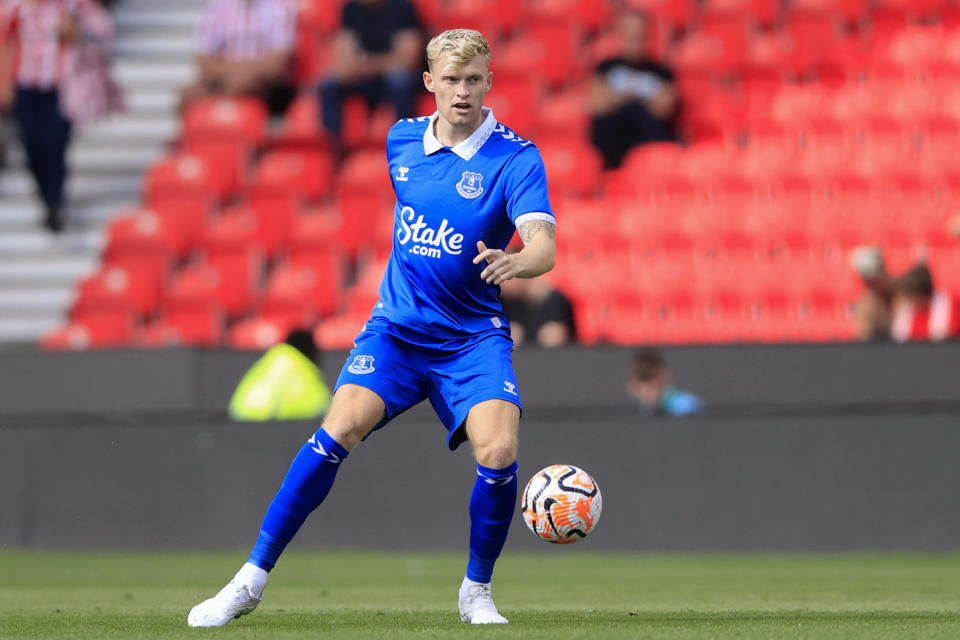Revealed: How Close Are Manchester United to PSR Breach?

Manchester United’s Financial Play: Navigating PSR Amid Market Moves
Manchester United’s active engagement in the transfer market this summer, including a bid for Everton’s Jarrad Branthwaite and discussions with Bayern Munich about Matthijs de Ligt, paints a picture of a club confident in its financial clout. However, a closer look at their latest financial disclosures reveals a more complex narrative concerning their adherence to the Premier League’s Profit and Sustainability Rules (PSR). The analysis by The Athletic serves as a foundation for understanding the financial tightrope the Red Devils are walking.

Market Moves vs. Financial Health
Despite the external display of financial strength through early transfer dealings, Manchester United’s accounts for the quarter ending March 31, 2024, show a substantial net loss of £71.4 million ($92 million). This figure is part of a broader narrative of financial challenges, bringing their total pre-tax loss for the 2023-24 season to a worrying £89.2 million ($114 million). These numbers are significant as they approach the Premier League’s threshold of £105 million ($135 million) allowable loss over three years, necessitating scrutiny of how such financial dynamics influence their market strategies and compliance with fiscal regulations.

Strategic Financial Management
One of the key strategic moves by the club was the January decision to send Jadon Sancho and Donny van de Beek on loan, which was likely a tactical effort to mitigate financial losses and stay within the PSR limits. This decision underscores a cautious approach to spending, reflecting a broader understanding of their precarious financial standing. The club’s financial strategy seems to be a delicate balance between maintaining competitive on-field performance and ensuring compliance off the field.

Potential Consequences of Financial Missteps
Should Manchester United exceed the PSR limits, they could face penalties similar to those imposed on Everton and Nottingham Forest, including points deductions. Such sanctions not only affect league standings but could also impact the club’s reputation, player morale, and future contractual negotiations. The implications extend beyond the immediate season, potentially altering the club’s strategic decisions for years to come.
Evaluating Revenue Streams and Financial Health
Despite the bleak picture painted by the quarterly losses, United’s overall revenue for the nine months up to March 2024 has increased by 8%, largely buoyed by their participation in the Champions League. This increase is set against a backdrop of fewer matches at Old Trafford compared to the previous year, which had a temporary depressive effect on earnings. These figures suggest a volatile but potentially recoverable financial scenario, dependent on continued high performance and strategic financial management.
Liquidity and Debt: A Snapshot
On the liquidity front, United had £67 million ($86 million) in cash reserves as of March 31, a slight decrease from the previous year. Their principal debt stands at $650 million, with current borrowings on their revolving credit facility down from the prior year. These figures reveal a club that is managing its debts cautiously, albeit against a backdrop of high operational costs, including more than £1 million ($1.3 million) paid weekly in interest charges—a direct consequence of the Glazer family’s leveraged buyout model.
Looking Ahead: Transfer Strategies and Financial Compliance
As the summer progresses, United’s approach to the transfer market will likely be conservative, influenced heavily by their financial health and the need to comply with PSR. While their revenue streams appear robust, the club’s strategic financial decisions in the coming months will be critical in determining their ability to continue competing at the highest levels without jeopardizing their financial compliance.
In conclusion, Manchester United’s situation illustrates the intricate balance between sporting aspirations and financial reality. As they navigate the complexities of the transfer market and PSR compliance, the decisions made now will resonate beyond the current season, shaping the club’s financial and competitive future. The club’s situation, as detailed by The Athletic, serves as a compelling case study of the interplay between finance and football—a narrative that will undoubtedly continue to evolve with each fiscal quarter and transfer window.

 Yahoo Sports
Yahoo Sports 
